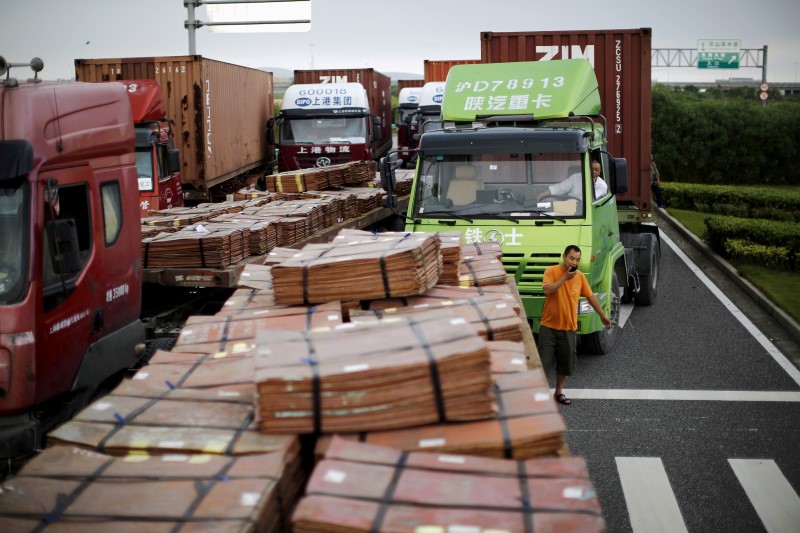By David Lawder
WASHINGTON (Reuters) - The United States challenged China's export duties on nine key metals and minerals on Wednesday, arguing they violate Beijing's commitments to the World Trade Organization (WTO) and give an unfair advantage to Chinese manufacturers.
China said it respected WTO rules and that the duties had been imposed as part of efforts at environmental protection.
The U.S. move came with the Obama administration eager to demonstrate that it is taking a tough stance on enforcing international trade agreements, which have come under fire from Republican presidential candidate Donald Trump and from within Obama's own Democratic party.
Vice President Joe Biden later on Wednesday was due to tout President Barack Obama's trade enforcement record as being more aggressive than past administrations in a speech at the Port of San Diego, with 22 WTO cases filed against trading partners since 2009 - including 16 aimed at China.
U.S. Trade Representative Michael Froman said the raw materials case seeks to remove China's export duties of 5 percent to 20 percent on antimony, cobalt, copper, graphite, lead, various magnesia compounds, talc, tantalum and tin, which it said are key inputs into U.S. industries, including aerospace, autos, electronics and chemicals.
He said the duties impose higher costs on U.S. manufacturers, while Chinese competitors do not have to pay them, encouraging companies to locate production in China.
"These duties are China's attempt to game the system so that raw materials are cheaper for their manufacturers and more expensive for ours," Froman said in a statement.
"This scheme is directly at odds with WTO commitments China has made, and, as we've shown time and again, we will hold them accountable to their commitments."
China's Commerce Ministry expressed regret at the decision, and said it would handle it according to the WTO dispute resolution process.
China's export duties have been imposed in the face of "daily worsening pressure on resources and the environment" and are to help with sustainable development.
"They are a part of overall measures to strengthen environmental protection and accord with WTO rules," it said.
The Office of the U.S. Trade Representative (USTR) said that China had committed, as part of the terms of its joining the WTO in 2001, that it would eliminate export duties for all products other than those listed in a specific annex, which exclude the nine metals and minerals named in the case.
As a result of other WTO challenges, USTR says that China in April agreed to scrap some export subsidies and the United States won a ruling against Chinese import duties on certain U.S. high-tech steel products. Meanwhile, the U.S. Commerce Department has imposed steep anti-dumping and anti-subsidy duties on a range of Chinese steel products.
But in a signal that the steel trade brawl will keep escalating, China's Ministry of Commerce said on Wednesday that it would seek relief from the WTO after accusing the United States of deliberately misinterpreting WTO rules in applying anti-dumping duties on Chinese-made stainless steel sheet and strip products.
In the raw materials challenge, the dollar value of individual mineral imports in some cases are relatively small, but they have a big impact on industries, Obama administration officials said.

For example, they said graphite imports from China were about $24 million last year, but the mineral is not produced in the United States and is a key ingredient in brake linings, an industry which supports 20,000 U.S. jobs, and in lithium ion batteries for electric cars as well as in lubricants.